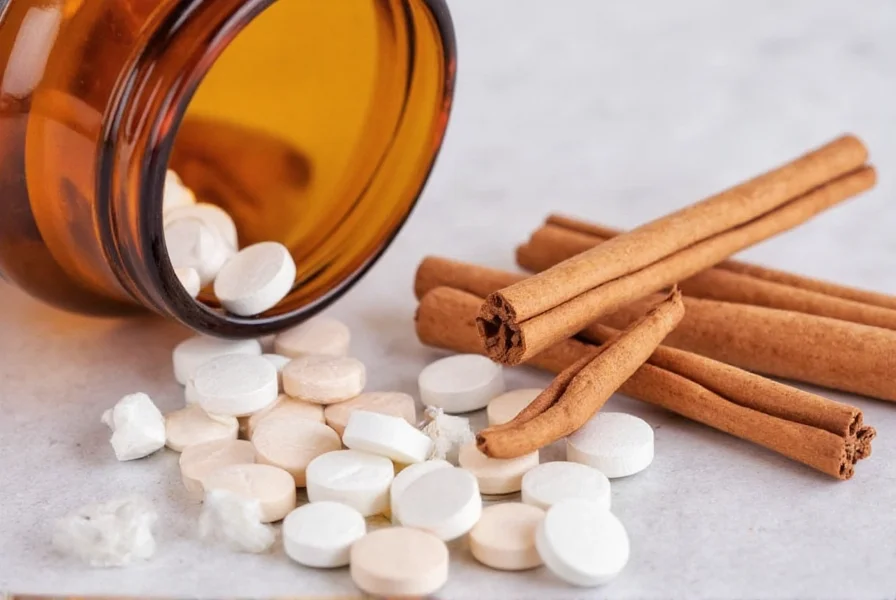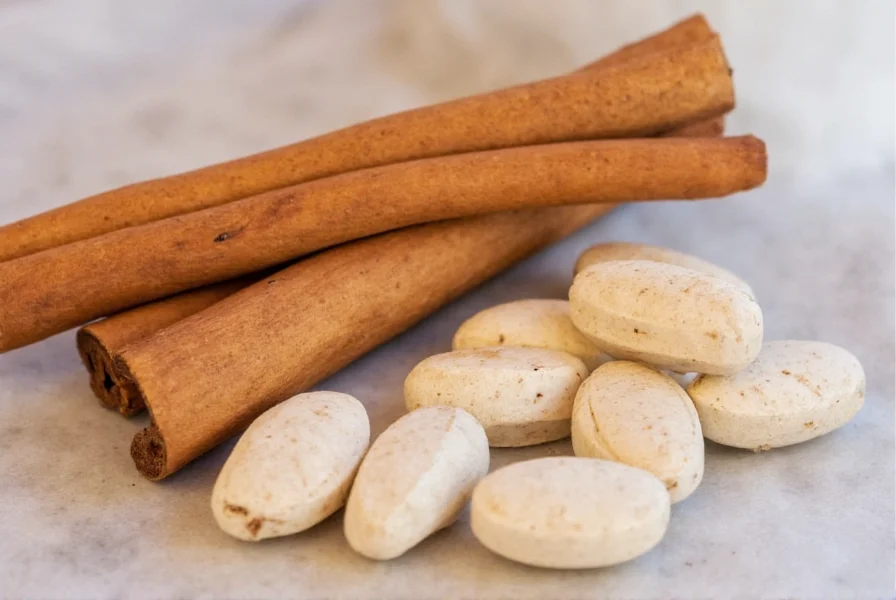Yes, cinnamon—particularly Cassia cinnamon—can interfere with certain medications. The primary concern is coumarin content in Cassia cinnamon, which may interact with blood thinners like warfarin, increasing bleeding risk. Cinnamon may also enhance the effects of diabetes medications, potentially causing hypoglycemia. Always consult your healthcare provider before combining cinnamon supplements with prescription medications.
Understanding Cinnamon's Potential Medication Interactions
Cinnamon has gained popularity for its potential health benefits, but many users don't realize it can interact with common medications. This is especially important for individuals managing chronic conditions who take prescription drugs daily. Understanding these interactions can prevent potentially dangerous health complications.
Cinnamon Types and Active Components
Not all cinnamon is created equal when considering medication interference. Two primary varieties exist:
| Type of Cinnamon | Coumarin Content | Common Usage |
|---|---|---|
| Cassia (Chinese) Cinnamon | High (2.1-4.4g/kg) | Most common in supermarkets and supplements |
| Ceylon ("True") Cinnamon | Very Low (0.017g/kg) | Less common, typically labeled as Ceylon |
The compound of greatest concern is coumarin, which gives Cassia cinnamon its distinctive flavor but can cause liver toxicity and interact with medications. Ceylon cinnamon contains significantly less coumarin and is generally safer for regular consumption.

Major Medication Categories with Documented Interactions
Blood Thinners and Anticoagulants
Cassia cinnamon's high coumarin content poses the most significant risk for individuals taking blood thinners like warfarin (Coumadin). Coumarin itself has anticoagulant properties, and when combined with prescription blood thinners, it can dangerously increase bleeding risk. Research published in the Journal of Agricultural and Food Chemistry indicates that regular consumption of Cassia cinnamon could elevate INR levels beyond therapeutic ranges.
Diabetes Medications
Cinnamon may lower blood sugar levels, which can be problematic when combined with diabetes medications like insulin, metformin, or sulfonylureas. A systematic review in the Annals of Family Medicine noted that while cinnamon shows potential blood sugar benefits, unsupervised use alongside diabetes medications could lead to hypoglycemia. Patients should monitor blood glucose more frequently if consuming cinnamon supplements while on these medications.
Liver-Metabolized Medications
Coumarin is metabolized by the liver, potentially interfering with medications processed through similar pathways. This includes certain statins, antibiotics, and antifungal medications. The European Food Safety Authority has established a tolerable daily intake of coumarin at 0.1 mg per kilogram of body weight, which can be exceeded with regular Cassia cinnamon supplement use.
Evidence Behind Cinnamon Medication Interference
The evidence for cinnamon-medication interactions varies by drug class:
- Blood thinners: Strong evidence from case reports and pharmacological studies showing increased bleeding risk
- Diabetes medications: Moderate evidence from clinical trials showing additive blood sugar-lowering effects
- Liver-metabolized drugs: Theoretical risk based on metabolic pathways, with limited direct evidence
A 2020 review in Phytotherapy Research concluded that while cinnamon shows therapeutic potential, "the risk of adverse interactions with conventional medications necessitates caution and medical supervision, particularly for Cassia varieties with high coumarin content."
Safety Guidelines for Cinnamon Consumption with Medications
If you take prescription medications and want to use cinnamon, follow these evidence-based recommendations:
- Identify the cinnamon type: Choose Ceylon over Cassia when possible, especially for regular use
- Monitor dosage: Limit Cassia cinnamon to less than 1 teaspoon (2-3g) daily to stay within coumarin safety limits
- Track medication effects: Pay attention to unusual bruising, bleeding, or blood sugar fluctuations
- Consult your healthcare team: Discuss cinnamon use with both your physician and pharmacist
- Timing matters: Space cinnamon consumption several hours apart from medication doses when possible

When to Avoid Cinnamon Supplements Completely
Certain populations should exercise extreme caution or avoid cinnamon supplements altogether:
- Individuals on warfarin or other blood thinners with unstable INR levels
- People with liver disease or taking hepatotoxic medications
- Pregnant or breastfeeding women taking prescription medications
- Those scheduled for surgery within two weeks (due to bleeding risk)
The American Herbal Products Association notes that "Cassia cinnamon should be used with caution in individuals taking medications that affect coagulation or blood sugar regulation." This caution reflects the growing body of evidence regarding cinnamon medication interference risks.
Practical Steps for Safe Use
To safely incorporate cinnamon while managing medication interactions:
- Read supplement labels carefully for cinnamon type and coumarin content
- Start with small amounts (1/4 to 1/2 teaspoon) and monitor for effects
- Keep a symptom and medication log to share with your healthcare provider
- Consider Ceylon cinnamon as a safer alternative for regular use
- Never replace prescribed medications with cinnamon supplements
Remember that "natural" doesn't always mean safe, especially when combined with prescription medications. The potential for cinnamon supplement drug interactions makes professional medical guidance essential.











 浙公网安备
33010002000092号
浙公网安备
33010002000092号 浙B2-20120091-4
浙B2-20120091-4